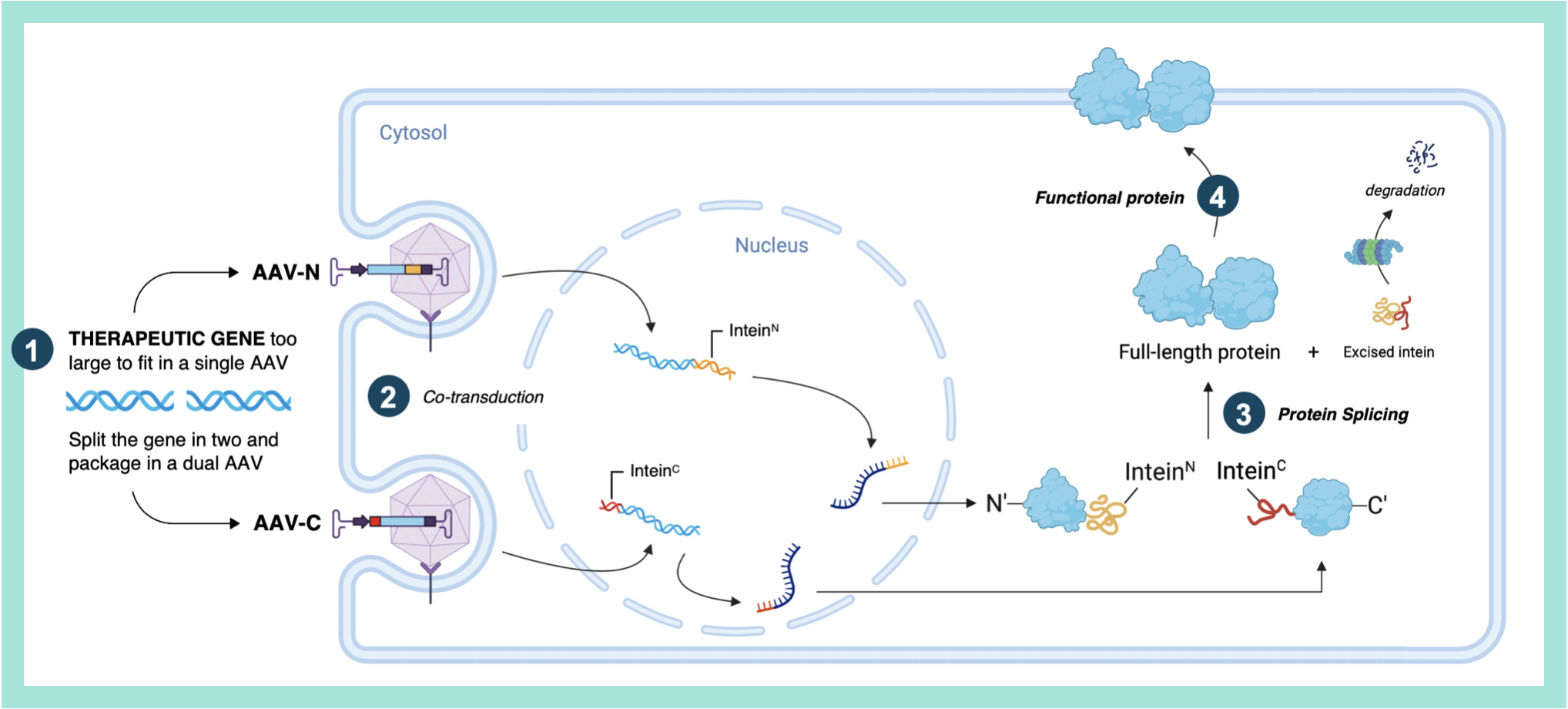In the last two decades, the field of gene therapy has made extraordinary progress in the quest of developing therapies for devastating diseases. Adeno-associated viruses (AAV) in particular have become the vector of choice for the delivery of such life-changing therapeutics. However, a major limitation has remained unchallenged: AAV vectors are constrained by their size and can only package small genes, hence leaving hundreds of monogenic diseases unaddressable with current technologies.
Protein Splicing Platform
Engineered split inteins
Since the 1990s, SpliceBio co-founders have been pioneering research with a family of proteins that had the potential to address this limitation: inteins. Inteins are auto-processing domains that carry out a process known as protein splicing, a multi-step biochemical reaction comprised of both the cleavage and formation of peptide bonds. However, inteins found in nature presented several limitations that rendered them unfit for the development of human therapeutics. Most recently, and building on more than 20 years of pioneering intein research characterizing the mechanism of action and structure-activity relationship of inteins and optimizing their properties, SpliceBio co-founders at Princeton University developed a new generation of inteins that overcome the limitations of natural inteins and are designed for therapeutic use: engineered split inteins.

Protein Splicing: pioneering a new gene therapy modality
Engineered split inteins lie at the core of SpliceBio’s platform, but we have developed additional proprietary technologies in-house that altogether conform our Protein Splicing platform. SpliceBio is working on several gene therapy programs across multiple therapeutic areas to develop life-changing therapies for patients in need.
